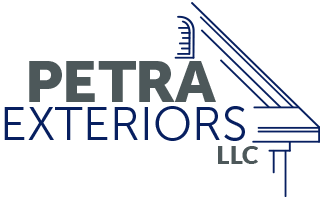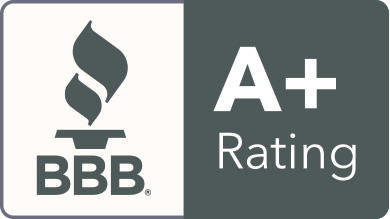Get answers to your most pressing roofing questions in one convenient location. From understanding when you need a roof replacement versus repair, to comparing shingle types and navigating insurance claims, our roofing FAQ section provides expert guidance for homeowners. Learn about installation costs, maintenance schedules, storm damage assessment, and how to choose the right roofing contractor for your project.
What roofing materials work best in Middle Tennessee’s climate?
Asphalt shingles and metal roofing perform exceptionally well in Tennessee’s humid summers and variable winters. Class 4 impact-rated shingles are recommended for our frequent hail storms, while proper ventilation systems are essential for managing humidity and preventing ice dams during rare freezing events.
Can roofing work be done in winter in Tennessee?
Yes, roofing can be installed year-round in Middle Tennessee with proper precautions. Our crews monitor weather conditions and use temperature-appropriate installation techniques. Emergency repairs are available 24/7, while planned replacements are typically scheduled during optimal weather windows.
How often should I have my roof inspected in Tennessee?
We recommend annual inspections in Middle Tennessee due to frequent severe weather. Additional inspections should be scheduled after major storms, especially hail events. Regular inspections identify small problems before they become costly repairs and help maintain warranty coverage.
What are signs of storm damage on my roof?
Look for missing, cracked, or curled shingles, granule loss, dented gutters, damaged flashing, and interior water stains. After Tennessee hail storms, check for impact marks on shingles and exposed nail heads. Professional assessment is recommended as damage isn’t always visible from ground level.
Do I need a permit for roof replacement in Tennessee?
Yes, most roof replacements in Middle Tennessee require building permits. Local building departments ensure work meets current codes for wind resistance and energy efficiency. We handle all permit applications and coordinate required inspections throughout the project.
How do I choose the right roofing contractor?
Look for licensed, insured contractors with local references and manufacturer certifications like GAF Master Elite status. Verify Better Business Bureau ratings, check recent project photos, and ensure they provide detailed written estimates. Avoid door-to-door solicitors following storms.
What’s the difference between roof repair and restoration?
Repairs address specific damaged areas, while restoration involves comprehensive renewal of the entire roofing system including shingles, underlayment, and flashing. Restoration is cost-effective for roofs with widespread but manageable damage, extending lifespan without full replacement.
How do Tennessee building codes affect my roof replacement?
Current Tennessee codes require enhanced wind resistance ratings, proper attic ventilation, and energy-efficient materials in many areas. Code requirements may differ between counties, and we ensure all installations meet or exceed local standards while maintaining manufacturer warranty compliance.
What causes ice dams and how are they prevented?
Though rare in Middle Tennessee, ice dams form when warm attic air melts roof snow that refreezes at gutters. Prevention includes proper attic insulation, ventilation systems, and sealed air leaks. Our installations include comprehensive ventilation design to prevent these issues.
Should I replace my roof and gutters at the same time?
Coordinating roof and gutter replacement saves money on labor and materials while ensuring proper integration. New gutters complement roof warranties and prevent water damage to your fresh installation. We offer complete exterior protection packages for maximum efficiency.
How does roof color affect energy efficiency in Tennessee?
Lighter roof colors reflect more heat, reducing cooling costs during Tennessee’s hot summers. However, proper attic ventilation and insulation have greater impact than color alone. We recommend ENERGY STAR certified shingles that balance aesthetic preferences with performance benefits.
What ventilation does my Tennessee home need?
Middle Tennessee’s humidity requires balanced intake and exhaust ventilation. Ridge vents, soffit vents, and sometimes powered exhaust fans prevent moisture buildup, extend shingle life, and improve energy efficiency. We calculate proper ventilation based on attic square footage.
How long do different roofing materials last in Tennessee?
Asphalt shingles last 20-30 years, architectural shingles 25-40 years, and metal roofing 40-70 years in Tennessee’s climate. Lifespan depends on installation quality, maintenance, and storm exposure. Premium materials with proper installation maximize durability and warranty protection.
What’s the lifespan of different siding materials?
Vinyl lasts 20-40 years, fiber cement 50+ years, wood 20-30 years with maintenance, and steel/aluminum 30-50 years. Proper installation and maintenance significantly extend lifespan.
What should I do immediately after storm damage?
Document damage with photos, contact your insurance company, and call for emergency tarping if needed. Avoid climbing on the roof yourself. We provide 24-hour emergency response to prevent additional water damage while coordinating with your insurance adjuster.
Can I install a new roof over existing shingles?
While building codes sometimes allow overlay installation, complete tear-off is usually recommended for optimal performance and warranty coverage. Overlays add weight and may hide underlying problems. We assess roof condition to recommend the best approach for your situation.
How do I maintain my roof between replacements?
Keep gutters clean, trim overhanging branches, inspect for loose or missing shingles, and address small problems promptly. Schedule professional inspections after severe weather. Proper attic ventilation and insulation maintenance also protect your roofing investment.
What happens if it rains during my roof replacement?
We monitor weather forecasts and use protective tarping when necessary. Our crews work systematically to minimize exposure time and have emergency protocols for unexpected weather. Most projects include weather delays in the timeline estimate.
Are impact-resistant shingles worth the cost in Tennessee?
Absolutely. Class 4 impact-resistant shingles often qualify for insurance discounts and provide superior protection against Tennessee’s frequent hail storms. The initial investment typically pays for itself through reduced storm damage and lower insurance premiums over time.
How do I know if my roof meets current wind resistance standards?
Modern installation includes enhanced nailing patterns, starter strips, and high-wind rated shingles. Roofs installed before current codes may need upgrades. We assess your roof’s wind resistance and recommend improvements to meet current Tennessee wind load requirements.
What financing options are available for roof replacement?
We offer various financing programs including zero-interest options for qualified applicants, extended payment plans, and insurance deductible assistance programs. Many customers also utilize home equity loans or contractor-specific financing to manage larger roofing investments.


